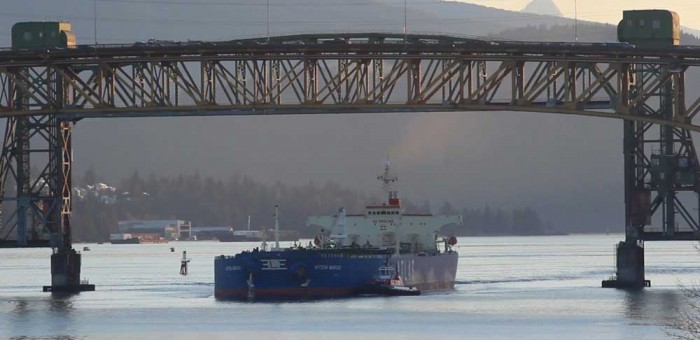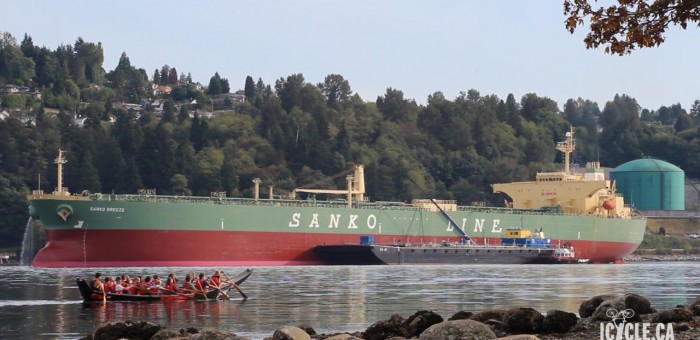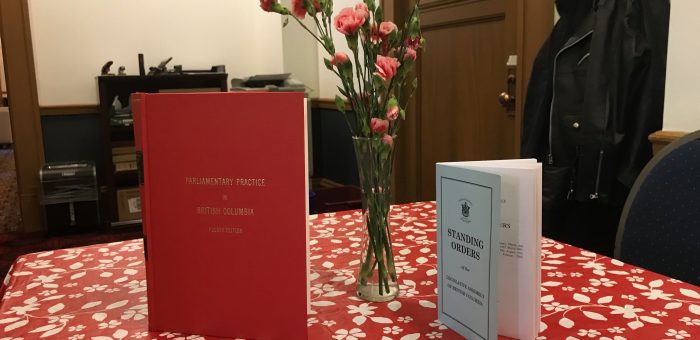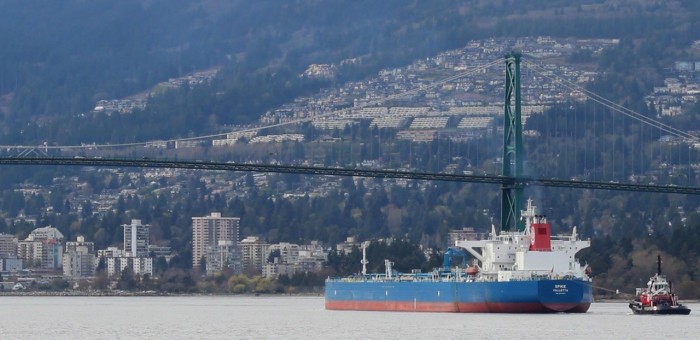Pipelines
Federal Court Ruling show politics put ahead of evidence and reconciliation in federal approval of pipeline
Today the Federal Court of Appeal released its decision on the long awaited Tsleil-Waututh Nation v. Canada (Attorney General) court case. In what should be the final death knell for the project, the Federal Court of appeal ruled that:
- The Board unjustifiably defined the scope of the project under review not to include project-related tanker traffic. This exclusion permitted the Board to conclude that, notwithstanding its conclusion that the operation of project-related marine vessels is likely to result in significant adverse effects to the Southern resident killer whale, the project was not likely to cause significant adverse environmental effects. The unjustified exclusion of project-related marine shipping from the definition of the project rendered the Board’s report impermissibly flawed: the report did not give the Governor in Council the information and assessments it needed in order to properly assess the public interest, including the project’s environmental effects—matters it was legally obligated to assess.
-
The Government of Canada was required to engage in a considered, meaningful two-way dialogue. However, for the most part, Canada’s representatives limited their mandate to listening to and recording the concerns of the Indigenous applicants and then transmitting those concerns to the decision-makers. On the whole, the record does not disclose responsive, considered and meaningful dialogue coming back from Canada in response to the concerns expressed by the Indigenous applicants. The law requires Canada to do more than receive and record concerns and complaints…The duty to consult was not adequately discharged.
The result is that the soon-to-be-taxpayer-owned project must redo “phase 3” of the consultation process and send the project back to the newly-constituted NEB process for a reassessment of the effects of increases in marine shipping.
As readers might imagine, I am delighted by the decision. My colleague Adam Olsen, MLA for Saanich North and the Islands and I both feel vindicated after many years serving as intervenors in the NEB process. We are grateful to the Tsleil-Waututh, Squamish, Coldwater, Secwepemec and other First Nations, along with the cities of Burnaby and Vancouver, for their efforts to ensure that the appropriate evidence was brought before the Federal Court of Appeal. We should not forget that the resources that could have been put to use in their communities were instead directed to the legal challenge.
The decision today is both a victory for science and evidence-based decision-making (ruling 1. above) as well as a victory for indigenous rights (ruling 2.). As the only sitting MLA to seek intervention status, my focus as an intervenor was almost exclusively on the former, culminating in an Open Letter to Prime Minister Trudeau in November, 2016.
I  was very disappointed by the petty response of Rachael Notley to the decision. As I summarized in a tweet earlier tonight:
was very disappointed by the petty response of Rachael Notley to the decision. As I summarized in a tweet earlier tonight:
It’s time to stop playing politics with younger generations’ future. The fed gov needs to show real climate leadership with a plan to meet our targets that doesn’t rely on selling out First Nations’ rights, the coast & the economic activity our communities depend on.
In response to the ruling, my office issues a media release which is reproduced below.
Media Release
Weaver: Federal Court Ruling show politics put ahead of evidence and reconciliation in federal approval of pipeline
For Immediate Release
August 30, 2018
VICTORIA, B.C. – Andrew Weaver, leader of the B.C. Green Party, congratulated the First Nations and local governments on the Federal Court of Appeal’s ruling today that federal government made its decision without considering all evidence and failing in their legal duty to consult First Nations. Weaver, who was an intervener in the National Energy Board hearings, says the ruling is further proof that the project should have never been approved.
“Today’s ruling is a victory for First Nations’ rights and for all those who have long held that this project was not approved based on evidence,” said Weaver.
“I am particularly glad to see the court’s judgement that there was an unjustifiable failure at the heart of the federal government’s approval of this project: the failure to assess the impacts of marine shipping on the environment. This was an outrageous omission on the part of the federal government that flies in the face of their stated commitment to evidence-based decision-making. The NEB acknowledged that the marine traffic from this project posed significant harm to the endangered Southern Resident Killer Whales. The government must now justify to Canadians, and to the world, why it is willing to herald the death knell of this irreplaceable species if it continues to pursue this project.
“Coming off of the two worst wildfire seasons in B.C.’s history, it’s clear that we cannot continue down the misguided path of expanding fossil fuel infrastructure. We owe it to our children and grandchildren to begin the immediate transition to the low-carbon economy. B.C. is a leader amongst the provinces, adopting carbon tax increases that are ahead of federal requirements. Our Caucus is working closely with the B.C. NDP minority government to create a clean growth strategy that will further advance our efforts. I hope the federal government will now realize that there is an enormous opportunity to support B.C.’s leadership, rather than attempting to force our province to shoulder the huge environmental and economic risks that this project presents.”
-30-
Media contact
Jillian Oliver, Press Secretary
+1 778-650-0597 | jillian.oliver@leg.bc.ca
Reacting to Federal government decision to buy Trans Mountain
In what can only be described as a desperate attempt to save face, the Federal Government announced today that it would use taxpayer money to buy Trans Mountain’s Canadian assets which include the existing pipeline from Alberta to the Burnaby refinery.
Below I reproduced the media statement that we released in response to this action.
Media Statement
Weaver: Federal government decision to buy Trans Mountain a betrayal
For immediate release
May 29, 2018
VICTORIA, B.C. – Andrew Weaver, leader of the B.C. Green Party, issued the following statement in response to the federal government’s decision to buy the Trans Mountain Pipeline.
“This is a betrayal by a government who ran on a hopeful vision for a better future,” said Weaver.
“A government that promised to end fossil fuel subsidies and to champion the clean economy should not be spending billions of dollars of taxpayer money to buy out a fossil fuel expansion project. We should be investing in growth industries that are clearly where the world is heading. Investing in this pipeline is like investing in the horse and buggy industry at the advent of the car.
“This is a deeply troubling decision on many levels. Canada stands to sacrifice its international reputation, irreplaceable iconic species like the Southern resident Killer Whales, and its commitments to meet its Paris Climate targets and to reconcile with Indigenous people – all while putting enormous risk on Canadian taxpayers.
“It is clear that the world is transitioning away from fossil fuels. The cost of renewable energy continues to fall – solar and wind are already cheaper than coal in many jurisdictions. Last week, a report by Aurora Energy Research projected the adoption of electric vehicles could wipe out $19 trillion in oil revenue. You don’t build infrastructure like this for the next few years – this is built to last for the next 40-50. This is not the infrastructure we need in 10 years and certainly not what we need in 40.”
-30-
Media contact
Jillian Oliver, Press Secretary
+1 778-650-0597 | jillian.oliver@leg.bc.ca
Statement on Trans Mountain court reference case
As promised, the BC Government today submitted a reference question to the B.C. Court of Appeal seeking a decision on whether of not it has the right to regulate heavy oil transportation across our province. In particular, it has asked the B.C. Court of Appeal three questions:
- Is it within the legislative authority of the Legislature of British Columbia to enact legislation substantially in the form set out in the attached Appendix?
- If the answer to question 1 is yes, would the attached legislation be applicable to hazardous substances brought into British Columbia by means of interprovincial undertakings?
- If the answers to questions 1 and 2 are yes, would existing federal legislation render all or part of the attached legislation inoperative?
As part of the submission, the province appended a potential amendment to the Environment Management Act (reproduced in the Appendix below) which it has asked the court to rule on.
The BC Green Caucus supports the government’s efforts in this regard and I append my media statement below.
Media Statement
Weaver statement on Kinder Morgan court reference case
For immediate release
April 26, 2018
VICTORIA, B.C. – Andrew Weaver, leader of the B.C. Green Party, issued the following response to the government’s court reference case.
“I am pleased to see the government is continuing to stand up for British Columbia,” said Weaver.
“Earlier this week, media reports uncovered further evidence that the approval process for this project was deeply flawed. It’s clear that the federal approval of this project was based on political calculation, not on evidence or the best interests of the public.
“There are significant gaps in scientific knowledge regarding the effects of a diluted bitumen spill. British Columbians are rightly concerned that a dilbit spill could significantly harm their health and safety, their local economy and their environment. Our caucus supports the government’s efforts to ensure these concerns are addressed and that our province is protected from hazardous materials that flow within its borders.”
-30-
Media contact
Jillian Oliver, Press Secretary
+1 778-650-0597 | jillian.oliver@leg.bc.ca
Appendix
The following Part is added to the Environmental Management Act, S.B.C. 2003, c. 53:
PART 2.1 – HAZARDOUS SUBSTANCE PERMITS
Purposes
22.1 The purposes of this Part are
(a) to protect, from the adverse effects of releases of hazardous substances,
(i) British Columbia’s environment, including the terrestrial, freshwater, marine and atmospheric environment,
(ii) human health and well-being in British Columbia, and
(iii) the economic, social and cultural vitality of communities in British Columbia, and
(b) to implement the polluter pays principle.
Interpretation
22.2 The definition of “permit” in section 1 (1) does not apply to this Part.
Requirement for hazardous substance permits
22.3
(1) In the course of operating an industry, trade or business, a person must not, during a calendar year, have possession, charge or control of a substance listed in Column 1 of the Schedule, and defined in Column 2 of the Schedule, in a total amount equal to or greater than the minimum amount set out in Column 3 of the Schedule unless a director has issued a hazardous substance permit to the person to do so.
(2) Subsection (1) does not apply to a person who has possession, charge or control of a substance on a ship.
Issuance of hazardous substance permits
22.4
(1) Subject to subsection (2), on application by a person, a director may issue to the applicant a hazardous substance permit referred to in section 22.3 (1).
(2) Before issuing the hazardous substance permit, the director may require the applicant to do one or more of the following:
(a) provide information documenting, to the satisfaction of the director,
(i) the risks to human health or the environment that are posed by a release of the substance, and
(ii) the types of impacts that may be caused by a release of the substance and an estimate of the monetary value of those impacts;
(b) demonstrate to the satisfaction of the director that the applicant
(i) has appropriate measures in place to prevent a release of the substance,
(ii) has appropriate measures in place to ensure that any release of the substance can be minimized in gravity and magnitude, through early detection and early response, and
(iii) has sufficient capacity, including dedicated equipment and personnel, to be able to respond effectively to a release of the substance in the manner and within the time specified by the director;
(c) post security to the satisfaction of the director, or demonstrate to the satisfaction of the director that the applicant has access to financial resources including insurance, in order to ensure that the applicant has the capacity
(i) to respond to or mitigate any adverse environmental or health effects resulting from a release of the substance, and
(ii) to provide compensation that may be required by a condition attached to the permit under section 22.5 (b) (ii);
(d) establish a fund for, or make payments to, a local government or a first nation government in order to ensure that the local government or the first nation government has the capacity to respond to a release of the substance;
(e) agree to compensate any person, the government, a local government or a First Nations government for damages resulting from a release of the substance, including damages for any costs incurred in responding to the release, any costs related to ecological recovery and restoration, any economic loss and any loss of non-use value.
Conditions attached to hazardous substance permits
22.5 A director may, at any time, attach one or more of the following conditions to a hazardous substance permit:
(a) conditions respecting the protection of human health or the environment, including conditions requiring the holder of the permit
(i) to implement and maintain appropriate measures to prevent a release of the substance,
(ii) to implement and maintain appropriate measures to ensure that any release of the substance can be minimized in gravity and magnitude, through early detection and early response, and
(iii) to maintain sufficient capacity, including dedicated equipment and personnel, to be able to respond effectively to a release of the substance in the manner and within the time specified by the director;
(b) conditions respecting the impacts of a release of the substance, including conditions requiring the holder of the permit
(i) to respond to a release of a substance in the manner and within the time specified by the director, and
(ii) to compensate, without proof of fault or negligence, any person, the government, a local government or a First Nations government for damages referred to in section 22.4 (2) (e).
Suspension or cancellation of hazardous substance permits
22.6
(1) Subject to this section, a director, by notice served on the holder of a hazardous substance permit, may suspend the permit for any period or cancel the permit.
(2) A notice served under subsection (1) must state the time at which the suspension or cancellation takes effect.
(3) A director may exercise the authority under subsection (1) if a holder of a hazardous substance permit fails to comply with the conditions attached to the permit.
Restraining orders
22.7
(1) If a person, by carrying on an activity or operation, contravenes section 22.3 (1), the activity or operation may be restrained in a proceeding brought by the minister in the Supreme Court.
(2) The making of an order by the court under subsection (1) in relation to a matter does not interfere with the imposition of a penalty in respect of an offence in relation to the same contravention.
Offence and penalty
22.8 A person who contravenes section 22.3 (1) commits an offence and is liable on conviction to a fine not exceeding $400 000 or imprisonment for not more than 6 months, or both.
Power to amend Schedule
22.9 The Lieutenant Governor in Council may, by regulation, add substances, their definitions and their minimum amounts to the Schedule and delete substances, their definitions and their minimum amounts from the Schedule.
2 The following Schedule is added:
SCHEDULE [section 22.3 (1)]
Substance: Heavy Oil
Definition of Substance:
a) a crude petroleum product that has an American Petroleum Institute gravity of 22 or less, or
b) a crude petroleum product blend containing at least one component that constitutes 30% or more of the volume of the blend and that has either or both of the following:
Minimum Amount of Substance:
The largest annual amount of the annual amounts of the substance that the person had possession, charge or control of during each of 2013 to 2017.
On the BC Liberal request to debate a matter of urgent public importance
Right after question period on Thursday of this week, the MLA for Abbotsford West (and the former House Leader when the BC Liberals were in Government) rose, pursuant to Standing Order 35, to seek leave from the Speaker to “make a motion for the adjournment of the House … for the purpose of discussing a definite matter of urgent public importance … “.
In his statement, the MLA for Abbotsford West argued that it was urgent to discuss:
“the necessity, advisability, and consequences of referring to the Court of Appeal the question of British Columbia’s ability to regulate or limit the transportation of energy products on federally approved and regulated pipelines and rail lines“.
During the 40th Parliament (prior to the May 2017 election) I stood three times pursuant to Standing Order 35 seeking to debate a matter of urgent public importance (all of them occurred in 2015).
The first sought a debate on whether or not in light of a preponderance of recent weather extremes, and in the lead up to an upcoming United Framework Convention on Climate Change meeting in Paris, we, as legislators, were acting with sufficient urgency and demonstrating the appropriate leadership on preparing for and mitigating the escalating impacts of climate change in British Columbia.
The second sought a debate on the recent failure of the contaminated soil site stormwater containment and clarification system at the South Island Aggregates — Cobble Hill Holdings — South Island Resource Management operations near Shawnigan Lake.
The third sought a debate on an economic backup plan for British Columbia given the collapse of this government’s strategy on LNG and the urgent need to transition to a low-carbon economy.
In all cases the Government House Leader (now the MLA for Abbotsford West) spoke against the need for such debates. As he pointed out,
“It is the urgency of debate, not the urgency of the matter itself”
that is important.
Both the Government House Leader (Mike Farnworth) and I spoke against the need for the present emergency debate. The reason of course is that the issue had been extensively canvassed in Question Period and Budget Estimate debates. Below I reproduce the video and text of my rationale.
Video of my remarks
Text of my remarks
A. Weaver: I rise to speak to the application for Standing Order 35. We were informed of this about a minute ago when this was put on our desk, so we’ve had a quick caucus meeting here.
I will suggest that I do have a lot of sympathy for the arguments brought forward by the Government House Leader.
I will also remind you of precedent. In the previous government, I rose pursuant to Standing Order 35 and I pointed out that it was critical at that juncture for the House here to have a debate on the issue of climate change in the lead-up to the Paris agreement, because government was deliberating on what it was going to do there. And both sides of the House, at that time, suggested that the urgency test had not been met.
I have been talking about the issue of Kinder Morgan for five, six years now. I would argue that the urgency test is not met either, in light of the fact that I listened to estimates, in light of the fact that I’ve been here in this chamber for the last number of weeks and there has been time after time after time where this has been debated. Some of the motions in private members’ time, some of the statements, are on this topic. We’ve had ample opportunity to discuss this.
Again, I come back to the precedent. I come back to the application of Standing Order 35 in the last parliament, when I rose precisely on an issue similar to this and the Speaker at the time ruled that it was not a matter of urgency. I would argue that the parallels are very similar. The argument at the time was that the issue of climate challenge had been debated in question period, it had been debated in estimates, and it had been debated in statements on Monday morning.
The analogy is direct. So our advice, hon. Speaker, as you make your decision, is that we find it difficult to see how this test of urgency is met.
Question Period: More on the dodgy economic case for the Trans Mountain pipeline
Today in the legislature I had the opportunity to rise once more in Question Period to question government further about the dubious economic justifications underpinning Alberta and Federal rhetoric supporting the Trans Mountain pipeline.
Below I reproduce the video and text of my exchange with the Minister of the Environment.
Video of Exchange
Question
A. Weaver: Yesterday, I asked the government whether they share the concerns being raised by many experts about the economics of the Trans Mountain pipeline. I’d like to pick up on that here.
Earlier this year and for the very first time, a new class of tanker — a very large crude carrier, or VLCC — left the newly refurbished Louisiana Offshore Oil Port destined for Asia. These tankers can load over two million barrels of oil, and the LOOP facility can fill them at a whopping rate of 100,000 barrels an hour.
The Aframax-class tankers that would leave the terminus at the end of the Trans Mountain pipeline can only take 555,000 barrels of diluted bitumen out of Burrard Inlet. That means that any Asian buyer would need to contract four Aframax tankers from the Trans Mountain terminus versus only one VLCC from the LOOP facility.
Based on this obvious economic reality that any Asian buyers would be serviced by the VLCCs out of the U.S. and not out of the terminus of Trans Mountain, my question is this, to the either the Deputy Premier and Minister of Finance or the Premier, if he’s here: is her government or his government and her ministry or the Premier’s office taking a hard look at the financial case for the Kinder Morgan pipeline?
Answer
Hon. G. Heyman: Thank you to the Leader of the Third Party for the question. I and other members of the government are certainly aware of the controversy around the economics, the different studies, the changes in conditions and different alternatives. I thank the Leader of the Third Party for reading these into the record.
But with respect to the Leader of the Third Party, it is the job of proponents to determine the economics. It is the job of other governments backing the project to determine the merits of the economics. I think all Canadian taxpayers would want other governments to take a long, hard look at the economics of a project in which they’re considering investing billions of dollars.
But our job, as the government of British Columbia, is to look at the interests of our environment and our economy, and that’s what we’re doing. That’s why we are considering every measure, every inch of our constitutional jurisdiction — to protect against a catastrophe that’s possible, that could have significant and awful economic interests on British Columbia. Tourism alone — 19,000 tourism businesses in British Columbia, employing 133,000 people in every corner of this province, in every constituency represented by members in this chamber.
It’s our duty, it’s our responsibility, to look out for those people. It’s not our responsibility to ignore them because a large project comes along. Our job is to ensure that if there are large projects, they don’t impact and take away the livelihood of those people or the $17 billion in revenue that the tourism industry generates every year in British Columbia.
Mr. Speaker: The Leader of the Third Party on a supplemental.
Supplementary Question
A. Weaver: I do thank the minister for his answer and his commitment to protecting British Columbia. But I respectfully disagree, because I believe it is the government’s responsibility to inform British Columbians about the economics of this proposal.
Why? Because the previous government claimed that the economic benefits for British Columbia were very large and, in fact, claimed that the government’s fifth condition was apparently met. Now unfortunately, the fifth condition was based on assertions that were put towards the 2012 National Energy Board in the submission. It’s now six years old, and many of the fundamental assumptions of that submission, of that economic case, on which the government claimed its fifth condition was met, are no longer valid.
Keystone XL and line 3 have been approved. That means that we have more than a million barrels a day of export capacity, which was unaccounted for. We’ve got North America now having the ability to ship through VCCs — that was never able. And we know that you can’t get bigger ships in Burrard Inlet. This government, I would argue, has a responsibility to review those numbers, so that British Columbians are given correct, accurate and up-to-date information about the economics of this project.
My question, Hon. Speaker, is to the Minister of Environment — through you and then through the Minister of Finance, who still has laryngitis. The previous provincial government made claims about the economic benefits to B.C. from this pipeline, that have been cast into serious doubt. Why isn’t this government examining the economic case more closely?
Answer
Hon. G. Heyman: Again, I thank the Leader of The Third Party. As he respectfully disagrees with me about the role of our government in this regard, I respectfully assert again to him that this is not a project that this government thinks is good for British Columbia. We’ve made that clear. We think the risk is so great, and far outweighs the reward.
What we are doing is ensuring that within our jurisdiction, within our ability to regulate and place conditions on a project that is federally decided upon — subject to an appeal to the federal court — we ensure that conditions and regulations are in place to protect our economy.
It’s important up and down our coast. We have a fisheries and seafood industry that contributes more than $660 million every year to our gross domestic product, and it employs 14,000 people, paying almost $400 million in wages.
Just yesterday, 450 businesses understood why we were taking this position; 450 B.C. businesses signed a joint letter calling on the government to continue to stand up for our coast and the tens of thousands of jobs that depend on protecting our coastline and our environment from a spill.







